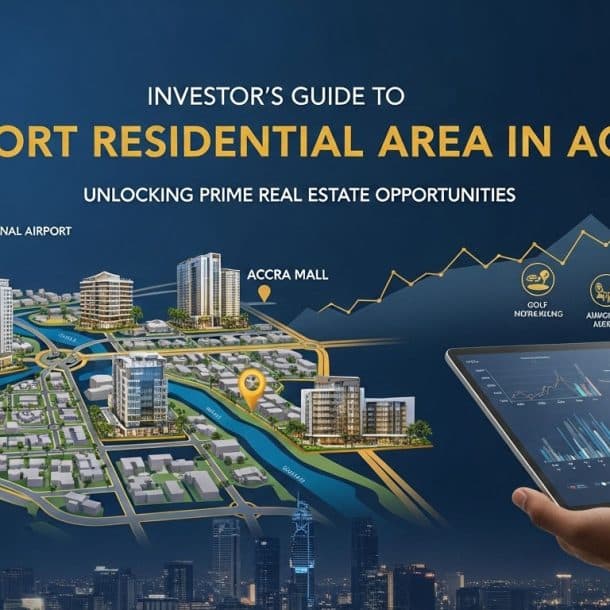
Table of Contents
ToggleThe decision of building versus buying a home Land Litigation Land Litigation in Ghana represents one of the most significant capital investments for any individual or family. As Ghana’s Real Estate Investment in Ghana Investment in Ghana Market estate sector matures amidst a resilient economy, this choice has become increasingly complex. This data-driven analysis dissects every component of cost, risk, and return for both paths, with a special focus on the urban markets of Accra and Kumasi.
Based on a comprehensive review of 2025 market data, our analysis concludes that for the majority of prospective homeowners—particularly Ghanaian diaspora, busy professionals, and retirees—buying a modern Buying an Apartment in Ghana a prime or well-planned urban area offers a superior risk-adjusted return, greater cost predictability, and a significantly lower management burden compared to building a house from the ground up.
While building a house offers unparalleled customization, this benefit is often outweighed by the financial predictability, professional management, and superior investment performance of acquiring an apartment in Ghana’s current market landscape.
To make an informed decision, one must first understand the foundational market forces at play. Ghana’s Real Estate Market estate landscape in 2025 is dynamic, shaped by economic growth, persistent inflation, rapid urbanization, and a significant influx of diaspora and foreign capital.
Ghana’s economy remains resilient, with the construction industry forecast to expand by 5.9% in 2025. However, this growth is tempered by stubbornly high construction costs. While general consumer inflation is cooling, year-on-year inflation for construction inputs hovers around 15.8%, creating significant budget uncertainty for building projects. Key market drivers include:
Building a home is a cultural aspiration, but it is a financially demanding and complex undertaking. The final cost extends far beyond materials, encompassing land, fees, and often-overlooked ancillary expenses.
The single most variable and significant cost is the land itself. A standard 70×100 ft plot’s price dictates the entire budget.
After land, the bulk of expenditure comes from professional services and the build itself. Key costs include:
| Cost Component | Accra (High-End Estimate) | Accra (Low-End Estimate) | Kumasi (Estimated) |
|---|---|---|---|
| 1. Land Acquisition (70×100 ft) | GH₵1,500,000+ | GH₵150,000 | GH₵80,000 |
| 2. Legal & Due Diligence (5% of Land) | GH₵75,000 | GH₵7,500 | GH₵4,000 |
| 3. Professional & Permit Fees | GH₵53,150 | GH₵21,890 | GH₵19,700 |
| 4. Construction & Finishes | GH₵500,000 | GH₵250,000 | GH₵225,000 |
| 5. External Works & Ancillary | GH₵80,000 | GH₵50,000 | GH₵45,000 |
| Sub-Total (Excluding Land) | GH₵633,150 | GH₵321,890 | GH₵291,700 |
| 6. Contingency Fund (20%) | GH₵126,630 | GH₵64,378 | GH₵58,340 |
| Total Estimated Project Cost | GH₵2,334,780+ | GH₵543,768 | GH₵424,040 |
Table 1: Estimated Cost Breakdown for Building a Standard 3-Bedroom House (2025). Note: Figures are illustrative estimates.
Acquiring an apartment offers a starkly different financial landscape defined by greater cost predictability and transparency. The path to homeownership here is quicker and less complex.
A defining feature of apartment living is the conversion of unpredictable future repairs into manageable monthly expenses.
To truly understand the build vs. buy dilemma in Ghana, we must compare them as distinct investment strategies. While building on affordable land can appear cheaper initially, the investment case for apartments is compelling.
This is where apartments demonstrate a decisive advantage. The apartment acquisition model is an income-focused strategy, while building a house is an equity-focused one.
| Factor | Building a House | Buying an Apartment | Winner |
|---|---|---|---|
| Customization & Control | High: Complete control over design | Low: Limited to interior modifications | Building |
| Time to Occupancy | Very Long (2-10+ years) | Short (Immediate to 24 months) | Buying |
| Project Management Effort | Very High: A part-time job | Very Low: Handled by professionals | Buying |
| Cost Predictability | Low: Prone to budget overruns | High: Price is fixed upfront | Buying |
| Risk of Land Litigation | High: A pervasive and major risk | Very Low: Title is secured by developer | Buying |
| Suitability for Diaspora | Low: Extremely risky to manage remotely | High: Ideal “lock-and-leave” solution | Buying |
Table 2: Qualitative Decision Matrix comparing key non-financial factors.
Our comprehensive analysis of building vs. buying in Ghana points to a clear conclusion for the modern investor and homeowner. For the vast majority of individuals, buying an apartment is the more prudent, predictable, and financially sound decision. It effectively outsources the immense risks of land litigation, budget overruns, and project management to a professional developer.
